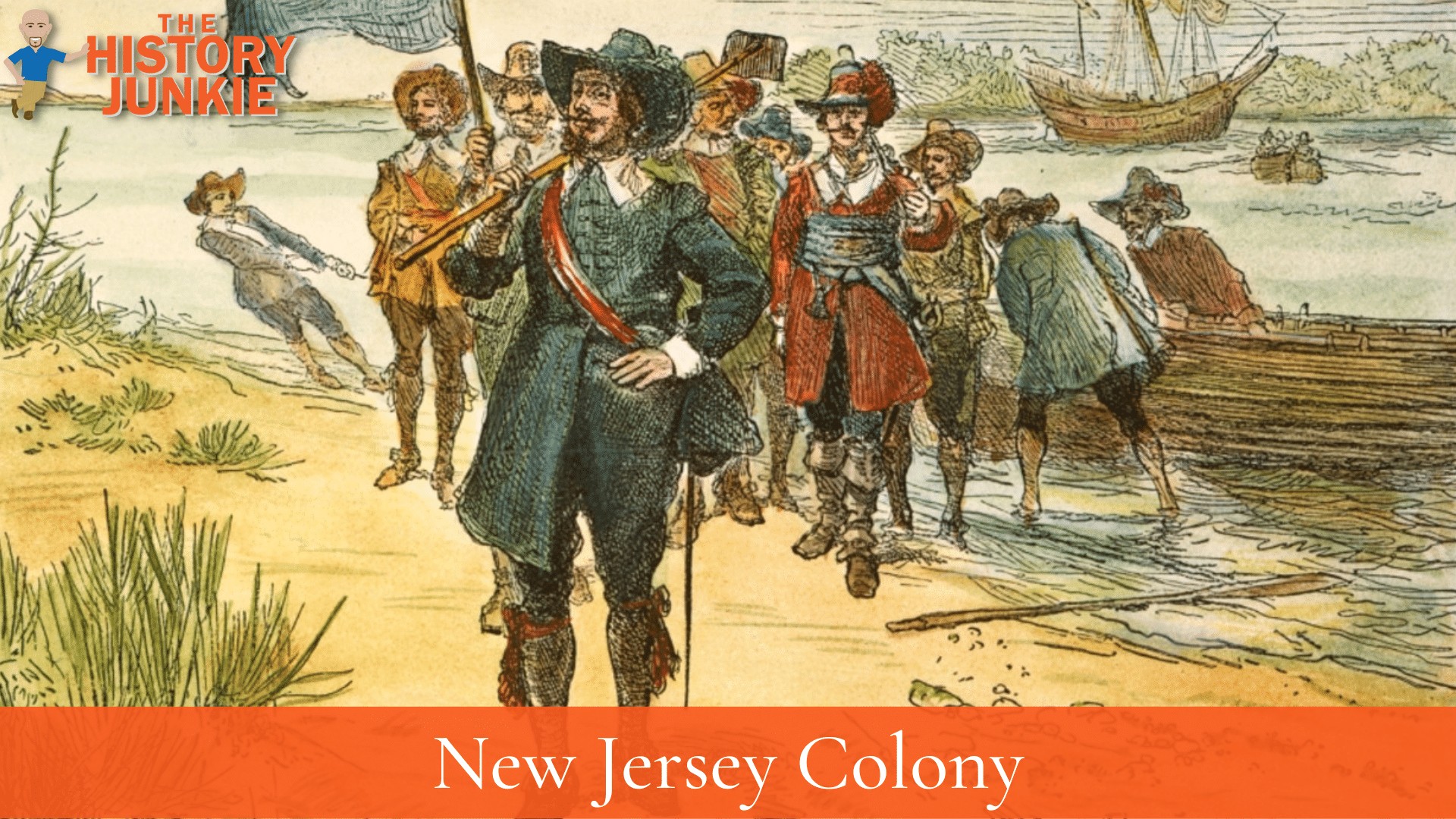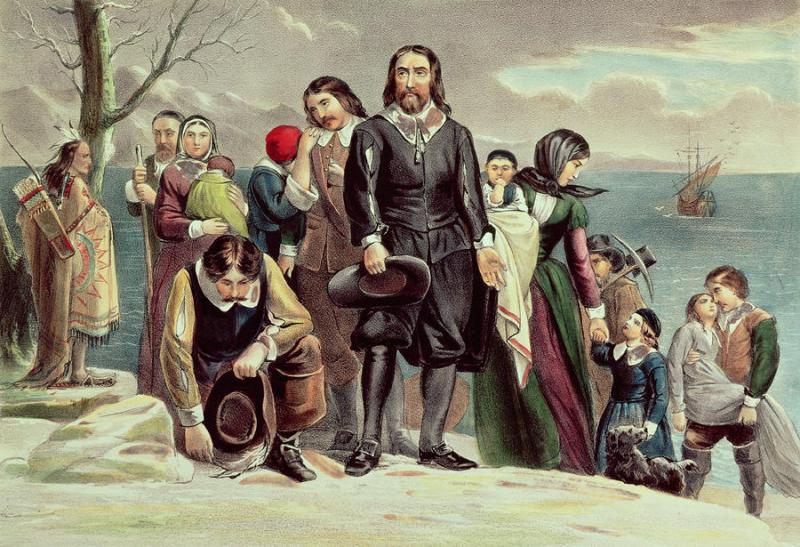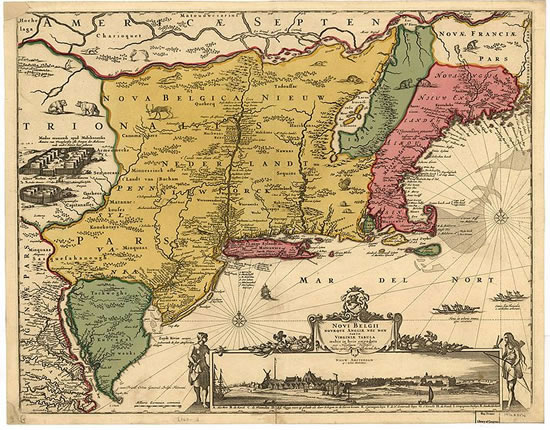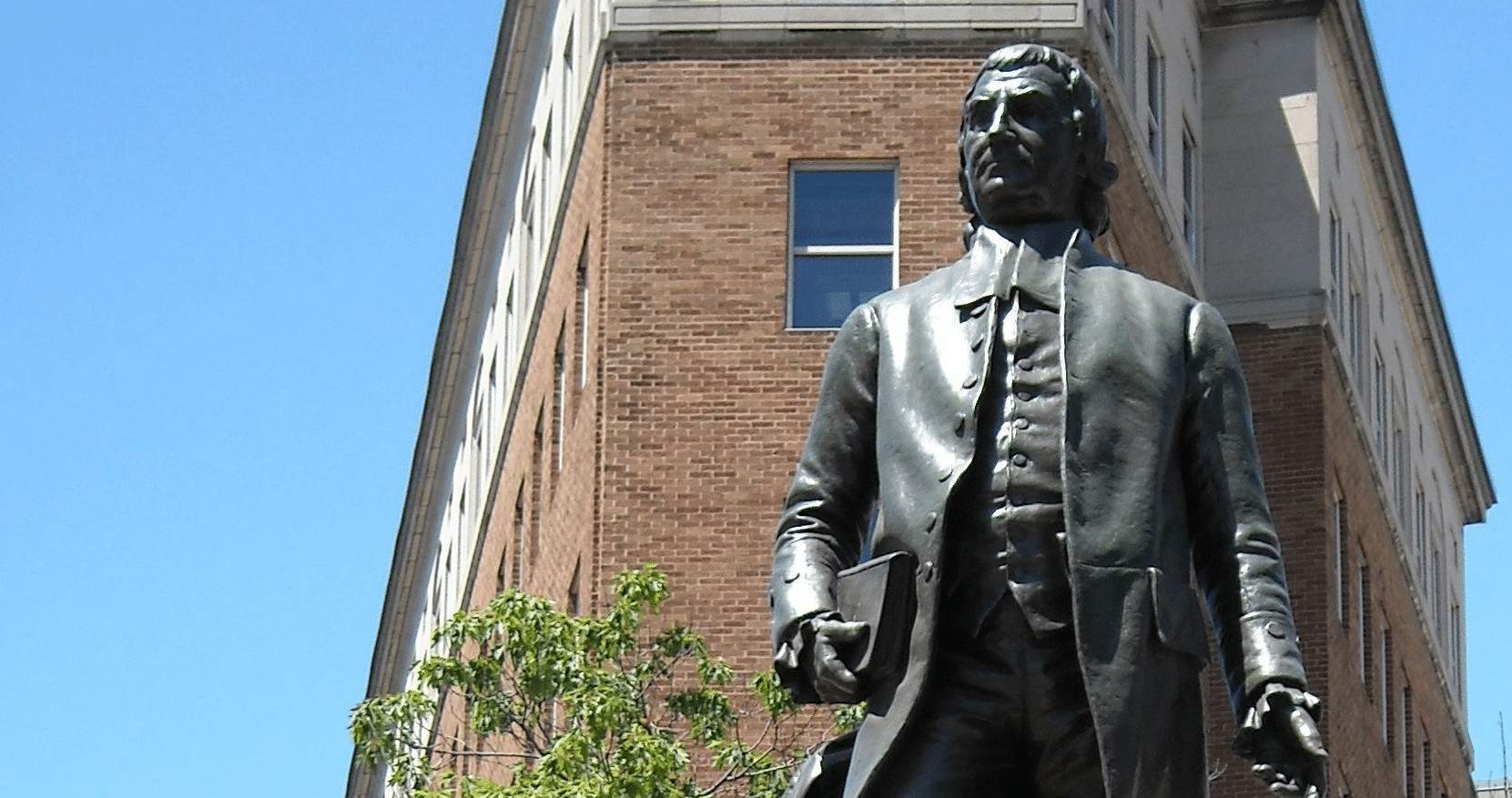The New Jersey Colony was one of the Middle Colonies of Colonial America and became the U.S. state of New Jersey in 1776.

The colony had originally been settled by the Dutch as part of New Netherland but came under British rule after the surrender of Fort Amsterdam in 1664, becoming a proprietary colony.
The English then renamed the province after the Isle of Jersey in the English Channel. The Dutch Republic regained control temporarily from 1673–1674.
After that, it consisted of two political divisions, East Jersey and West Jersey, until they were united as a royal colony in 1702. The original boundaries of the province were slightly larger than the current state, extending into a part of the present state of New York until the border was finalized in 1773.
Beginnings
New Jersey Colony began as a Dutch colony as a part of the colony of New Netherland. It remained in Dutch control for over 50 years until 1664, when the English took control of the entire Mid-Atlantic.
The English justified their seizing control by citing the expeditions of John Cabot, who sailed to the New World in 1497. They said he claimed the land for England first. Thus, the land already belonged to them.
When England took control of the colony, they set up a proprietary government, and King Charles II granted his brother James control of the Royal Colony, which lands stretched from New Netherland to modern-day Maine.

This conflicted with the previous charters of Massachusetts and Plymouth, which received separate charter years prior to 1664. The conflict was nothing more than a war of words as nothing ever came to it, and James, who was deeply in debt, gave two parts of his new possessions to George Carteret and Lord Berkeley of Stratton.
One portion that Carteret was granted was named after the Isle of Jersey and became part of the New Jersey Colony.
As a result, Carteret and Berkeley became the two English Lords Proprietors of New Jersey. The two proprietors of New Jersey attempted to attract more settlers to move to the province by granting sections of lands to settlers and bypassing the Concession and Agreement, a 1665 document that granted religious freedom to all colonists of New Jersey.
Under the British government, there was no such religious freedom as the Church of England was the state church. In return for the land, the settlers were supposed to pay annual fees known as quit-rents.
The idea of quitrents became increasingly difficult because many of the settlers refused to pay them. Most of them claimed that they owed nothing to the proprietors because they received land from Richard Nicolls, Governor of New York.
This forced Berkeley to sell West Jersey to John Fenwick and Edward Byllynge, two English Quakers. Many more Quakers made their homes in New Jersey, seeking religious freedom from English rule.
New Jersey would become a united Royal Colony on April 17, 1702.

American Revolutionary War
During the American Revolutionary War, the New Jersey Colony saw its share of action and produced much leadership. They supported the motion for independence, and the Declaration of Independence was signed by:
The most interesting name in the group was John Witherspoon.

John Witherspoon was one of the elder statesmen of the Continental Congress and had much influence on the founders as young men since many of them had attended the College of New Jersey that he was President.
New Jersey also became famous for George Washington's most famous victory, the Battle of Trenton. The Battle of Trenton and Princeton caused General William Howe to pull his troops back from New Jersey and raised the morale of the Continental Army.
Also, during the American Revolutionary War, the governor of the royal colony was staunch loyalist William Franklin, the son of notable patriot, inventor, diplomat, and founding father Benjamin Franklin.
William's loyalty to the crown would destroy the relationship between the two, and the two would never speak again once the war began.
Online Resources
- Wikipedia - Province of New Jersey
- Celebrate Boston - Brief History of New Jersey
- Colonial Hall - Signers from New Jersey
- The History Junkie's Complete Guide to Colonial America
- The History Junkie's Complete Guide to 13 Original Colonies
- The History Junkie's Complete Guide to the American Revolutionary War
